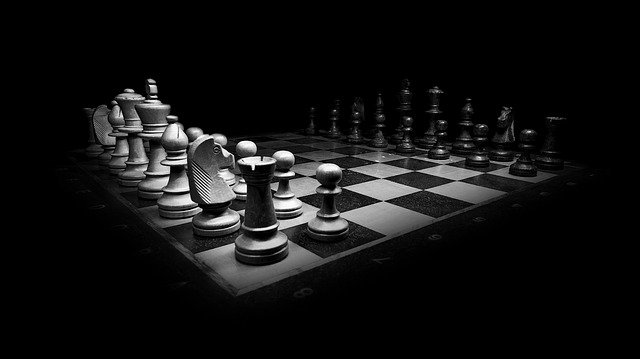by Nathan Chua
One of the awesome features of ACT (Acceptance and Commitment Therapy) is the use of metaphors that makes counseling work more experiential and interesting. One that has recently become my favorite is how an ACT therapist, Chris McCurry, uses the chess metaphor so effectively. Here’s how I remember some of the ways he describes the chess game and how it is similar to the way our minds work.
Our minds have different thoughts with varying degrees of importance and likeability. Some are quite important while others are part of our mundane thoughts, like our plans to go grocery-shopping for the day. The important ones can refer to our sense of meaning and purpose, our thoughts about how we can face life’s tragic aspects, or our important relationships that require our attention. Now, as chess is a game of two sides of a battle, one side can represent our more positive thoughts while the other will be our negative ones. In McCurry’s illustration, he says that even if we feel like the positive side may have the upper hand at any given moment, there will always be at least one piece of the negative side that remains. We can attest to this fact simply by checking in with our personal experiences. How many times have we enjoyed a vacation and said we don’t have any single negative thought in mind? Probably not! If you are married, did you do so with nary a negative thought? On the other hand, how many times have you been caught up in negative thoughts and still have that little tiny voice inside you that says: You’re alright, don’t worry! As you can see, neither one can totally eliminate the other.
In Russ Harris’ version of the chess metaphor for the mind, he shares that each white piece actually generates a black piece and vice versa. Positive thoughts remind us of our negative ones! You can test this with your own experience. See what you sense if someone like me told you that you are the nicest kindest person on the planet! See what your mind does with that information. I can also start with a negative judgment. You are the worst most unlikeable person on the planet! See what you mind does with that too.
Did you sense that in the former your mind tells you: Hogwash! I am a kind person but certainly not all the time or not compared to everyone else? On the other hand, did your mind do the same opposite-thinking while hearing me tell you that you are the worst person on the living earth! Your mind may say something that goes like this: Yeah, you’re right, sometimes I do feel that way, but that can’t be right all the time!
As you can see in these illustrations that there are no winners in this game that we play in our minds. It is unwinnable as McCurry describes it. So it is hopeless trying to be the positive pieces in this war in our heads. The negative pieces just aren’t leaving for as long as we are alive and with our nervous systems functioning as they are as I write and as you read this post.
The question now is: Then who could we be in this chess game so that we can get out of this war and move on with our lives? The answer is the chessboard! We are the containers of these thoughts but we are not them! And being the containers, we don’t really need to care who wins or loses in this game. We can remain as witnesses to this war!
If you are able to write down your thoughts, then this is a practice in metacognition! Noticing your thoughts and noticing that you are noticing them! That’s a part of you that notices everything that goes on in your life! And with this capacity, we can then choose the particular course of action that is most effective for what is unfolding in front of us!
Furthermore, I love that Chris McCurry also uses the chess game to illustrate life and its tragic elements. As we play the game, we will eventually lose pieces as we go through it. The object of the game is to keep playing with the pieces you have left. This is a bigger metaphor actually of not just our minds but of life itself. If we live long enough, we will experience the bitter sweetness that life presents. As Steven Hayes, the developer of ACT writes in his best-selling book,
“You have only so much time on this earth, and you don’t know how much. The question “Are you going to live, knowing you will die?” is not fundamentally different than these questions: “Are you going to love, knowing you will be hurt?” Or, “Are you going to commit to living a valued life knowing you will sometimes not meet your commitments?” Or, “Will you reach for success knowing you will sometimes fail.” The potential for pain and the sense of vitality you gain from these experiences go together. If your life is truly going to be about something, it helps to look at it from the perspective of what you would want the path your life leaves behind to mean.”
Life gives us but one chance and it doesn’t come without moments when we have to say goodbye to our youth, old friends, and loved ones. Like the game of chess, let’s make the most of what we have at present and live our One Life Only as well as we can.

